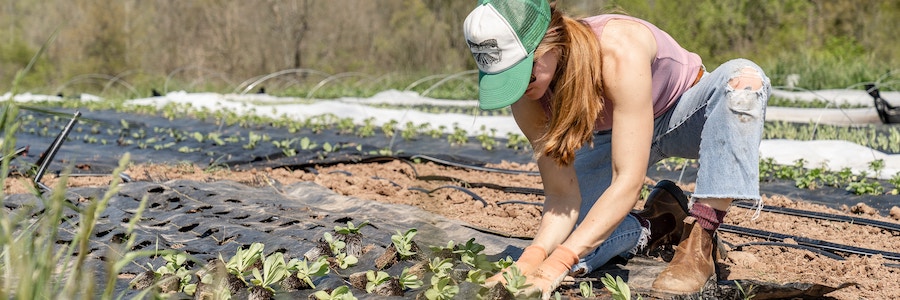Women now represent more than 37% of all farmers in California, according to the most recent USDA Census of Agriculture.
That healthy percentage, which surprises many people because they assume it is still primarily the domain of men, is only going to grow over the next few years because women are outpacing men in agricultural education.
For example, 79% of the students who earned a bachelor’s degree in agriculture-related majors in the 2020-21 academic year at the University of California, Davis, were women, with only 21% of graduates being men, according to researcher College Factual. When it comes to Masters Degrees at U.C. Davis, which is the leading agriculture university in California and the U.S., women took home 57% of the degrees in the 2021-2021 academic year and men 43%.
Other agricultural colleges and Universities in California and nationally report a trend similar to the U.C. Davis percentages. Women are clearly studying and getting degrees in agriculture in far greater numbers than men are. This trend also tracks with the rise in the number
of women majoring in Stem (science, technology, engineering and mathematics) fields and establishing careers in the physical and life sciences, which include agriculture.
Women have always been involved in farming, including in California, but they’ve tended to be cast in more of a supporting role. Women also often hold full or part-time off-farm jobs in order to help support the family farm. But it’s clear today that this is changing. Not only are more and more women coming into farming, they’re doing so in direct-production roles and not just allied agriculture jobs. Women farmers are where the growth is.
Ennea Fairchild of Utah State University found in her research on gender and agriculture that women make up a little more than a third of those in most agriculture fields including farming and that their numbers are growing much faster than is the case with men.
Female farmers in the U.S. and particularly in California are younger, more likely to be a beginning farmer and more likely to live on the farm they operate compared with male farmers, according to the Census of Agriculture.
Additionally, the American Farmland Trust says women-led farms have laid off fewer workers than male-led farms have and are more involved in ensuring food security in the communities where they live and farm.

One of the major reasons California is the leading farm state in the U.S. is because of its focus on growing specialty crops. Over 400 crops are grown in the Golden State, which is something no other state comes close to matching.
Female farmers focus near-exclusively growing specialty crops rather than commodity crops, according to the American Farmland Trust and the Community Alliance with Family Farmers (Caff) in California. On a per-capita percentage basis, women-led farms grow more specialty crops than male-led farms do.
Woman-led farms and ranches also are in large part leading the charge in regenerative agriculture and regenerative ranching in California. Many of the most vocal advocates for regenerative agriculture and sustainability in the Golden State are women. They speak out on social media, write books, hold seminars and advocate strongly, as well as practice regenerative ag on the farm.
Regenerative agriculture is an outcome-based food production system that nurtures and restores soil health, protects the climate and water resources and biodiversity, and enhances farms’ productivity and profitability. It comprises a range of techniques, supported by technologies, which can combat challenges caused by climate change by restoring the health of soil and protecting the land’s ecosystem.
The majority of farmers in California are still men. However, according to the Census of Agriculture, the average age of a farmer in California is 59. Generationally, based on the current trend of more women than men graduating from agricultural colleges and getting into farming, along with the general trend which finds more interest among women than among men in agriculture, the future face of farming in California is most likely going to be as much or more female than it’s going to be male.
This will be surprising to many but it mirrors the dramatic changes in higher education and the workplace that have been evolving for three decades. Women, for example, lead men across the board in college admissions and a higher percentage of women than men have been founding startup companies in numerous fields over the last few years.
California agriculture will be all the better with the growing numbers of women entering the field, in both production farming and other areas, because diversity and inclusion not only are powerful but also lead to better problem solving, communication and innovation, all of which are essential for the future of food and farming in the Golden State.
The growing participation in farming by women can already be seen in the improved communications to the public over the last few years when it comes to water, labor and other issues vital to farmers and agriculture.
Female farmers and those in allied ag fields are helping change agriculture in California in ways not always directly seen but that are significant and are being felt daily. This includes everything from innovation in specialty crop production and sustainability, to farm-to-product vertical integration, marketing, communications, farm/community building and inclusiveness. The future is bright.
My Job Depends on Ag Magazine columnist and contributing editor Victor Martino is an agrifood industry consultant, entrepreneur and writer. One of his passions and current projects is working with farmers who want to develop their own branded food products. You can contact him at: victormartino415@gmail.com.







